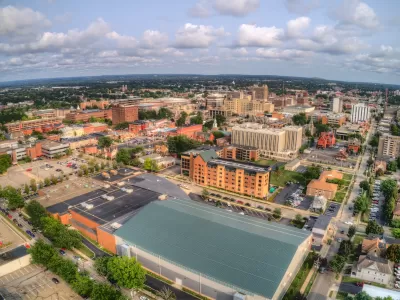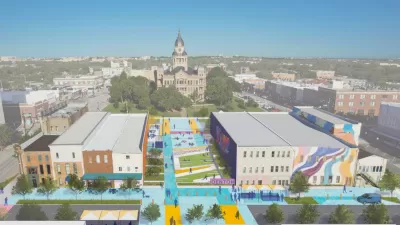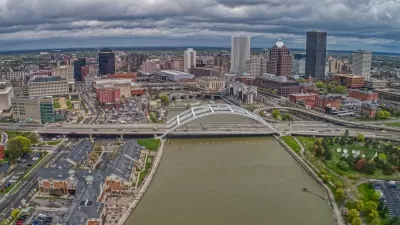The federal economic development program has brought over $100 billion in private investment to revitalize struggling communities.

In an opinion piece for Governing, Steven G. Glickman and Jonathan Tower argue for the expansion of the federal Opportunity Zone program created by the 2017 Tax Cuts and Jobs Act.
Opportunity Zones, the authors explain, “were originally designed as an experiment to incentivize new streams of private capital investment in distressed areas, pushing overly bureaucratic decision-making from the federal government down to more nimble states, cities and individual investors in exchange for long-term investments that generate new economic activity and housing.”
Since then, Opportunity Zones were created in over 8,700 communities across the U.S., attracting more than $100 billion in private investment by 2022, all geared toward revitalizing underserved communities. The authors note that “To get it right, you have to have the right mix of community leaders, investors, entrepreneurs and developers with a shared long-term vision of the future.”
The authors support extending and expanding the program to make more communities eligible, asserting that the program could grow to become the first billion-dollar economic development initiative. “If we are really serious about the success of Opportunity Zones, Congress should include them as a permanent part of the tax code, providing the private sector with the clarity and confidence needed to achieve the true scale of impact that’s possible.”
FULL STORY: Opportunity Zones Are a Big Success. Let’s Make Them a Lot Bigger.

Montreal Mall to Become 6,000 Housing Units
Place Versailles will be transformed into a mixed-use complex over the next 25 years.

Planetizen Federal Action Tracker
A weekly monitor of how Trump’s orders and actions are impacting planners and planning in America.

California High-Speed Rail's Plan to Right Itself
The railroad's new CEO thinks he can get the project back on track. The stars will need to align this summer.

Nevada Legislature Unanimously Passes Regional Rail Bill
If signed by the governor, the bill will create a task force aimed at developing a regional passenger rail system.

How Infrastructure Shapes Public Trust
A city engineer argues that planners must go beyond code compliance to ensure public infrastructure is truly accessible to all users.

Photos: In Over a Dozen Cities, Housing Activists Connect HUD Cuts and Local Issues
We share images from six of the cities around the country where members of three national organizing networks took action on May 20 to protest cuts to federal housing funding and lift up local solutions.
Urban Design for Planners 1: Software Tools
This six-course series explores essential urban design concepts using open source software and equips planners with the tools they need to participate fully in the urban design process.
Planning for Universal Design
Learn the tools for implementing Universal Design in planning regulations.
City of Camden Redevelopment Agency
City of Astoria
Transportation Research & Education Center (TREC) at Portland State University
Municipality of Princeton (NJ)
Regional Transportation Commission of Southern Nevada





























